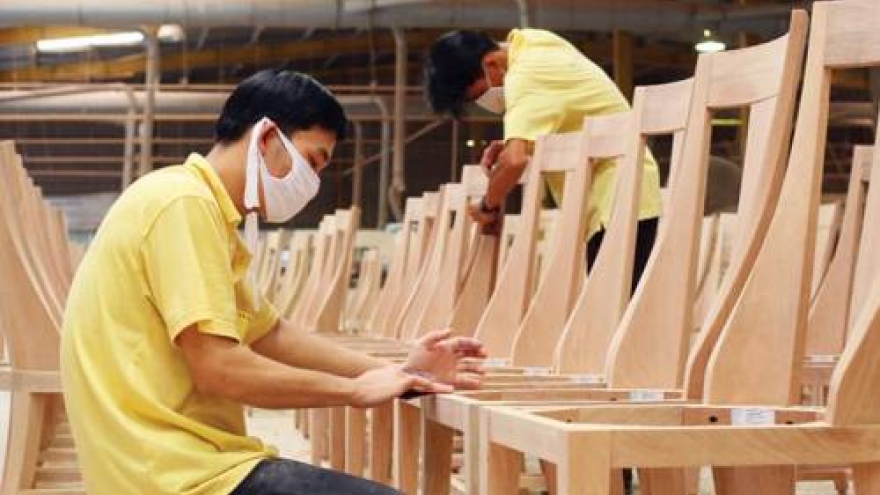Experts find opportunities, challenges for furniture industry
VOV.VN - The home furnishings industry in Vietnam is at a turning point in terms of its global competitiveness, according to speakers at a recent workshop in Ho Chi Minh City.
 |
Higher labour, production, raw-material and shipping costs in Vietnam and across Asia in general have created opportunities for foreign competitors in markets like the US and Latin America to become more price competitive.
“Recent studies have shown there is an increasing willingness for US consumers to purchase Made-in-Vietnam furniture,” said Dr To Xuan Phuc, an analyst for the Forest Trade and Finance Program, based in Hanoi.
But in order to fully capitalize on that, Vietnamese manufacturers have to find a way to attract talented young production workers as “an aging workforce is rapidly depleting the skilled worker pool,” said Dr Phuc.
Company executives must now manage their operations amid increasing margin pressure while combatting the onslaught of an influx of imported wooden furniture products into the Vietnamese market.
Most significantly, complex new regulations brought about by free trade agreements such as the imposing certificate of origin rules, make running a business that much more difficult— all while running short on talent.
To navigate these challenges, it’s incumbent upon those aspiring to become industry leaders to turn their focus to their strengths in new product development while implementing unique strategies to attract and retain top staff.
The tough new environmental standards brought about by the EU-Vietnam Free Trade Agreement and the proposed Trans Pacific Partnership (TPP) just means the industry is heading for more turbulent waters ahead.
“In markets such as the EU and the US,” said Dr Phuc, major furniture brands, by default, become responsible for their suppliers’ performance.
This means that if a Vietnamese manufacturer is in the supply chain of a major global brand; and the local company violates the strict environmental regulations of one of the respective free trade agreements, it could be disastrous.
“The local company will most surely be booted right out of the supply chain, if that were to happen,” said Dr Phuc. “They are not going to let a small Vietnamese company trash their reputation.”
So, said Dr Phuc, local company needs to understand that getting into the supply chain of major global brands brings with it certain expectations as it relates to sustainability and environmental practices.
In short, the furniture industry needs bright young hands-on workers who have the savvy to learn the business from the ground up. These workers need to understand that environmental performance is of paramount importance, as it directly impacts supply chain reliability and financial stability.
Lastly, he said, new technology is transforming the industry.
“While technology often brings with it a reduction in the size of the workforce, it creates an even greater need for skilled workers who understand and know how to operate the technology, said Dr Phuc.
He cautioned that rising Vietnamese production costs also are making Mexico and other Latin American countries a more viable sourcing alternative for global brands, as has been the case for EU and US automobile manufacturers.
Some Latin American countries manufacturing costs, including labour and transportation, are now even lower than in China and comparable to the lowest costs in Southeast Asia.



